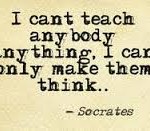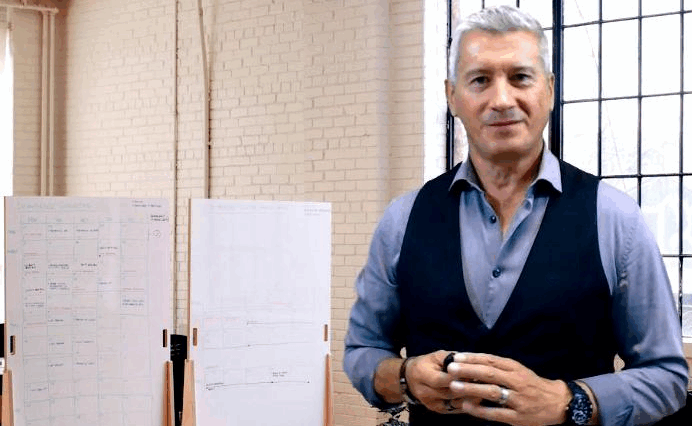 I love CSI and other similar series. For me, the thrill of it, isn’t about the incredible scenes with the lab experiments or the processes to rebuild the crime scene with all gadgets and technology. What i really love the most in the series is in the slow pace dialogues, the looks, observation and questions raised for instance from Horatio to his fellow team members. The highlights weren’t about what they knew, or about the facts, evidences and leads. It was about the art of mastering questions. Asking questions, the right ones, would determine if they would succeed or not.
I love CSI and other similar series. For me, the thrill of it, isn’t about the incredible scenes with the lab experiments or the processes to rebuild the crime scene with all gadgets and technology. What i really love the most in the series is in the slow pace dialogues, the looks, observation and questions raised for instance from Horatio to his fellow team members. The highlights weren’t about what they knew, or about the facts, evidences and leads. It was about the art of mastering questions. Asking questions, the right ones, would determine if they would succeed or not.
Those small seconds or minutes were precious to determine what were they missing, what where they disregarding, what where they ignoring (sometimes right in front of their eyes). And from all the few set of questions, the investigation would take different paths, different approaches and different analysis. It’s great to see that. Try it once. Watch one of those episodes and focus on the “art of raising questions”, not necessarily between team members, can even be monologue where one just tries to build the puzzle talking out loud. See how powerful it is not only in terms of tv entertaining moment but on the scope switching directions, finding new ways, and helping it to keep moving forward and not stay stuck with a cold case.
I start wondering of the benefit to use such approach in my life. We all focus in answers and very rarely in questions. We need answers and we need them now. Having answers makes us feel smart, updated, “in” the circle. Very often we sort out our “ready made answers” even before the other person finishes their view. We jump in quick conclusions, we want to close topics and move to the next one, no questioning. Assumptions, presumptions and life goes on. We need to show we know, we need to show we control. But all this is so limited and limiting.
I admit it isn’t easy to switch modes. It’s like cutting any other habit that is inside us for almost our entire life.
Bear with me for a minute. when a baby/kid starts phrasing the first complete sentences, almost 80% of what they say are questions (that most of the times annoy or exasperate the parents). Why this? why that? what is this? How does that works? why are you mad at me? why are you sad? why do we die?
But than things start slowing down as we grow up. We reduce that habit and our curiosity fades a bit away. Look at puberty, kids still have questions (maybe more than before) but start holding them. Once you reach adulthood you’re supposed to stop questioning and accept things as they are. It’s a pity we’re not motivated to keep carry on that questioning habit and curiosity.
Remember that saying? there are no stupid questions, only stupid answers.
Start with yourself and steadily start using it as a practice. Why can’t I reach x potential? How can I expand my network on a serious manner? What if I try to live below my means? How can I spend more time doing the things I love? What can I do to grow and evolve? why should I accept my current status if I’m not happy? Why shouldn’t I challenge it or change it?
It’s hard to raise questions about things you don’t know. and even harder to find what a good question would be. Practice, and start with yourself, your surrounding, your life. Be bold, be naive. Cars, electricity, phones, internet, google of linkedin, they exist today and we used them without wondering how did we get them? who came up with it. We just assume the world was as it was when we got here. Guess what, somebody had that idea, that curiosity and that perseverance to ask questions, and follow their paths. At a certain moment in time somebody asked that question “why not?” was it a stupid vision?
You don’t need to go that far or become such an icone (and why not?), but raising questions might sparkle your curiosity, change your perspectives, open your horizons and lead you to explore further your potential. Change from reactive mode to proactive.

Don’t intend to come up here with a quick list of ready made questions. Each of us is unique, has different paths, realities and aspirations. Therefore leave you just a few that I ask myself and that that I have “as must to’s” to keep my focus on becoming a better version each day on any domain.
What have I done good today? what can I do better next time? what did I miss I could have done? Did I smiled enough today? what can I learn from this? How can I turn this situation around? It’s a difficult situation but can I find something positive about it? did I showed gratitude today? why do I misuse my intelligence with regret or anxiety? (regret= past events, things you can’t change / anxiety= future, things that didn’t happen yet and that you can’t control). Did I learn something today?
Up to you to go on with the list, but don’t limit it to your inner person, you can apply the principle in any situation you may want to see differently. At same time don’t flood yourself with questions or don’t let them stuck you. The purpose is to help you move on, not to block you.
